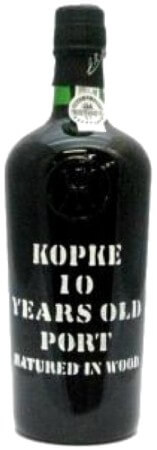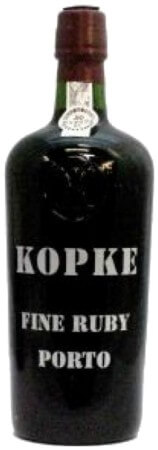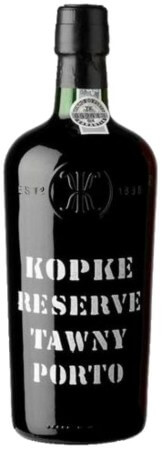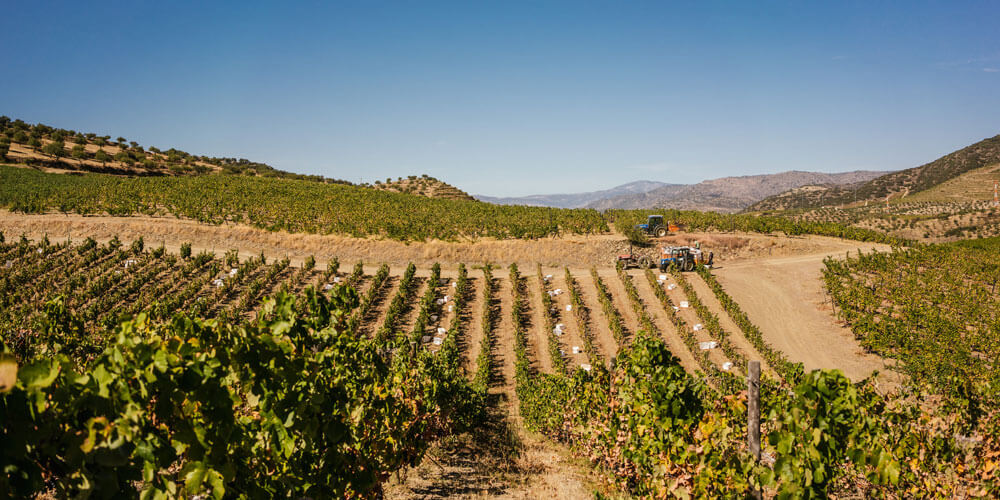
Croft Late Bottled Vintage Port 2017
- port wine
- sweet
- 2017
- Portugal - Porto
- Alte Rebsorten, Diverse Rebsorten
Ready to ship today,
Delivery time appr. 1-3 workdays

Quinta do Vale Meão Monte Meão Casa das...
- Red wine
- 2020
- Portugal - Douro
- Tinta Barroca, Touriga Franca
Ready to ship today,
Delivery time appr. 1-3 workdays

Evel Tinto 2019
- Red wine
- dry
- 2019
- Portugal - Douro
- Tinta Roriz, Touriga Franca, Touriga Nacional
Ready to ship today,
Delivery time appr. 1-3 workdays

Quinta da Romaneira Fine Tawny
- port wine
- sweet
- no vintage
- Portugal - Porto
- Tinta Barroca, Tinta Roriz, Touriga Franca
Ready to ship today,
Delivery time appr. 1-3 workdays

Kopke 10 Anos Porto
- port wine
- sweet
- no vintage
- Portugal - Porto
- Diverse Rebsorten
- Robert Parker: 89 points
Ready to ship today,
Delivery time appr. 1-3 workdays

Kopke Fine Ruby Porto
- port wine
- sweet
- no vintage
- Portugal - Porto
- Diverse Rebsorten
Ready to ship today,
Delivery time appr. 1-3 workdays

Kopke Special Reserve Tawny Porto
- port wine
- sweet
- no vintage
- Portugal - Porto
- Diverse Rebsorten
Ready to ship today,
Delivery time appr. 1-3 workdays

Calem Lágrima White Porto
- port wine
- sweet
- no vintage
- Portugal - Porto
- Diverse Rebsorten
Ready to ship today,
Delivery time appr. 1-3 workdays

Wine & Soul 10 Years Old Tawny Port
- port wine
- sweet
- no vintage
- Portugal - Porto
- Diverse Rebsorten
- Wine Spectator June 2012: 92 points
- Wine Challenge 2015: Bronze Medal
Ready to ship today,
Delivery time appr. 1-3 workdays

Passadouro Reserva Tinto 2016
- Red wine
- dry
- 2016
- Portugal - Douro
- Diverse Rebsorten
Ready to ship today,
Delivery time appr. 1-3 workdays

Quinta do Noval Vintage Porto 2018
- port wine
- sweet
- 2018
- Portugal - Douro
- Sousão, Tinta Cao, Touriga Franca, Touriga Nacional
Ready to ship today,
Delivery time appr. 1-3 workdays

Quinta Nova Vintage Porto 2000
- port wine
- sweet
- 2000
- Portugal - Douro
- Alte Rebsorten, Diverse Rebsorten
- Wine Spectator 2020: 93 points
- Robert Parker 2019: 96-98 points
- Revista Grandes Escolhas 2019: 18 points
- Revista de Vinhos 2019: 17.5 points
Ready to ship today,
Delivery time appr. 1-3 workdays
More Information
For centuries, Douro winemakers have delighted the world with their port. Now international wine experts recognize that the region also has perfect conditions for the production of high-quality, non-fortified red and white wines. Douro winemakers manage to produce amazing wines that stand out strongly and can be described as the most intense, complex wines in Portugal. The region's two controlled designations of origin are geographically coincident. The DOC Porto is reserved for port wine production, while the winegrowers under the DOC Douro produce only stil wines.
In the Douro region grows an incredible variety of grape varieties. There are still many small vineyards with the so-called mixed set, a traditional mixture of grape varieties. Some winemakers consider this "mix of grapes" as the key to the highest quality. Others believe that the best grape varieties are Touriga Nacional, Touriga Franca and Tinta Roriz, which are also used for port wine. Still others prefer the Sousão (or Vinhão) for its welcome acidity. What is certain is that the cultivation of individual varieties facilitates the daily work of winemakers, since pruning, harvesting, etc. can be done at the same time and for the entire vineyard of one variety. The traditional vineyards with their old, spectacular, stone-walled wine terraces are still preserved today in the center of the Douro - after all, they are also part of the UNESCO World Heritage Site. In other parts of the region, the landscape is dominated by modern terraces, separated by earthen rather than stone walls, with the greater distance between vines leaving enough room for tractors to pass through. On the less steep hills, the vines are generally grown vertically rather than terraced. There are also big changes in the wineries themselves.
The Douro Valley is probably the largest wine region in the world where significant quantities of the grapes are still pressed by foot - in shallow open fermentation vats called lagares. The seeds and stems of the grapes are not crushed in this method. In recent years, robots have increasingly taken over the footwork, so-called "robotic lagares" (robos for short), which simulate the movements of the feet. The DOC Douro is divided into three geographical sub-areas: The westernmost area, Baixo Corgo, is the coldest of the three sub-regions. Influenced by the maritime climate, the wines there are a bit lighter. Cima Corgo, around the town of Pinhão, is the heart of the Douro. Protected from maritime influences by mountains, two-thirds of Douro wines are currently produced here. To the east, towards the Spanish border, lies Douro Superior. Wild, isolated, and with extreme weather conditions such as cold winters and scorching hot summers, yields here have always been very limited and meager. Nevertheless, in recent years, winemakers have recognized the region's potential and have initiated considerable new plantings. However, the fact that just 17 percent of the potential growing area is planted with vines proves that growing grapes on the rocky terrain is very difficult. The base wine for Portugal's port wines is produced and fortified in the wineries of the Douro Valley. It is then taken to the port wineries of Vila Nova de Gaia, a town located across the estuary from Porto, for aging. Port wine comes in a wide variety of styles from young, fruity white, tawny and ruby to the most expensive and exclusive vintage port wines and aged tawnies. Vintage Port is bottled after only 2 years of aging from the barrel, thus retaining its red color and strong aroma. It benefits from further aging in the bottle, gaining complexity. Single Quinta Vintage Port wines come from private wineries. Colheita Port wines are also made from grapes of a particular vintage, but are aged in wooden barrels for at least seven years before being bottled. Tawny Port wines, on the other hand, have aging periods of ten, 20, 30 or 40 years. They are characterized by a lighter color, a soft delicate note and a higher complexity due to the aging process in the barrel.
White main grape varieties: Viosinho, Malvasia Fina, Gouveio, Rabigato, Côdega, Donzelinho Branco, Esgana Cão and Folgazão
Red main grape varieties: Touriga Nacional, Tinta Roriz (Aragonez), Touriga Franca, Tinta Barroca, Tinto Cão, Sousão, Bastardo, Mourisco Tinto, Castelão, Rufete, Tinta Amarela (Trincadeira) and Tinta Francisca.

